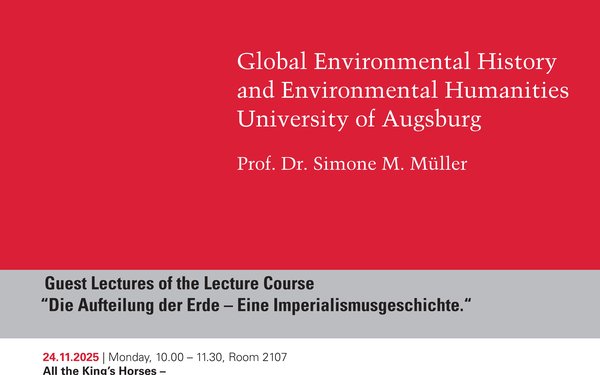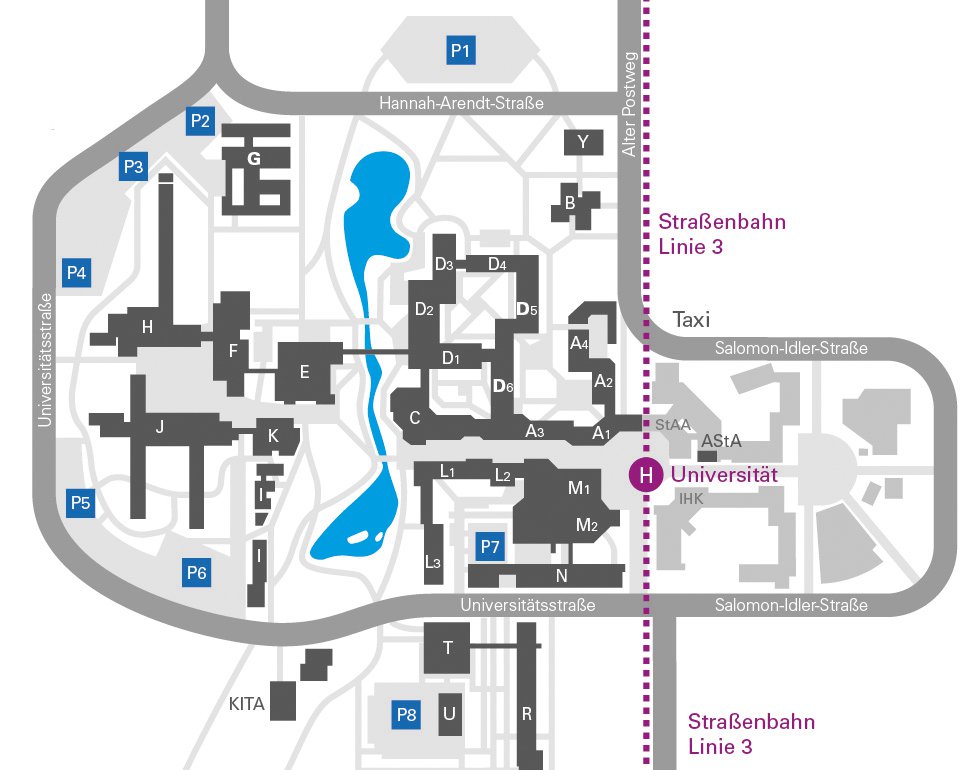News
Workshop at UC Berkeley by Prof. Simone M. Müller and Isabel Richter (German Historical Institute Washington, Pacific Office) on November 16–17, 2026
Guest Lectures in the course: ?Die Aufteilung der Erde – Eine Imperialismusgeschichte“
As part of the lecture series by Professor Simone M. Müller, there will be guest lectures by Dr. Harrison Croft (24.11.2025, Public Climate School) and by Dr. J. Uluwehi Hopkins (15.12.2025). The lectures will take place on Mondays from 10:00 to 11:30 in Lecture Hall 2107 in Building D. Anyone interested is welcome to attend.

5th Network Meeting of Environmental History

Contact
Contact Information:
Address:
Professorship for Global Environmental History
and Environmental Humanities
Universitaetsstrasse 10
86159 Augsburg
Germany
Phone: +49 821 598 - 2795 (Secretary)
E-Mail: sekretariat.umweltgeschichte@philhist.uni-augsburg.de
?
Raum: Building D, Room 4505

Aktuelles
Workshop at UC Berkeley by Prof. Simone M. Müller and Isabel Richter (German Historical Institute Washington, Pacific Office) on November 16–17, 2026
Guest Lectures in the course: ?Die Aufteilung der Erde – Eine Imperialismusgeschichte“
As part of the lecture series by Professor Simone M. Müller, there will be guest lectures by Dr. Harrison Croft (24.11.2025, Public Climate School) and by Dr. J. Uluwehi Hopkins (15.12.2025). The lectures will take place on Mondays from 10:00 to 11:30 in Lecture Hall 2107 in Building D. Anyone interested is welcome to attend.

5th Network Meeting of Environmental History

Allgemeine Kontaktinformationen:
Anschrift:
Universit?t Augsburg
Professur für Globale Umweltgeschichte und Environmental Humanities
Universit?tsstra?e 10
86159 Augsburg
Telefon: +49 821 598 - 2795 (Sekretariat)
E-Mail: sekretariat.umweltgeschichte@philhist.uni-augsburg.de
?
Sekretariat: Geb?ude D2, Raum 4500
?
?
?









